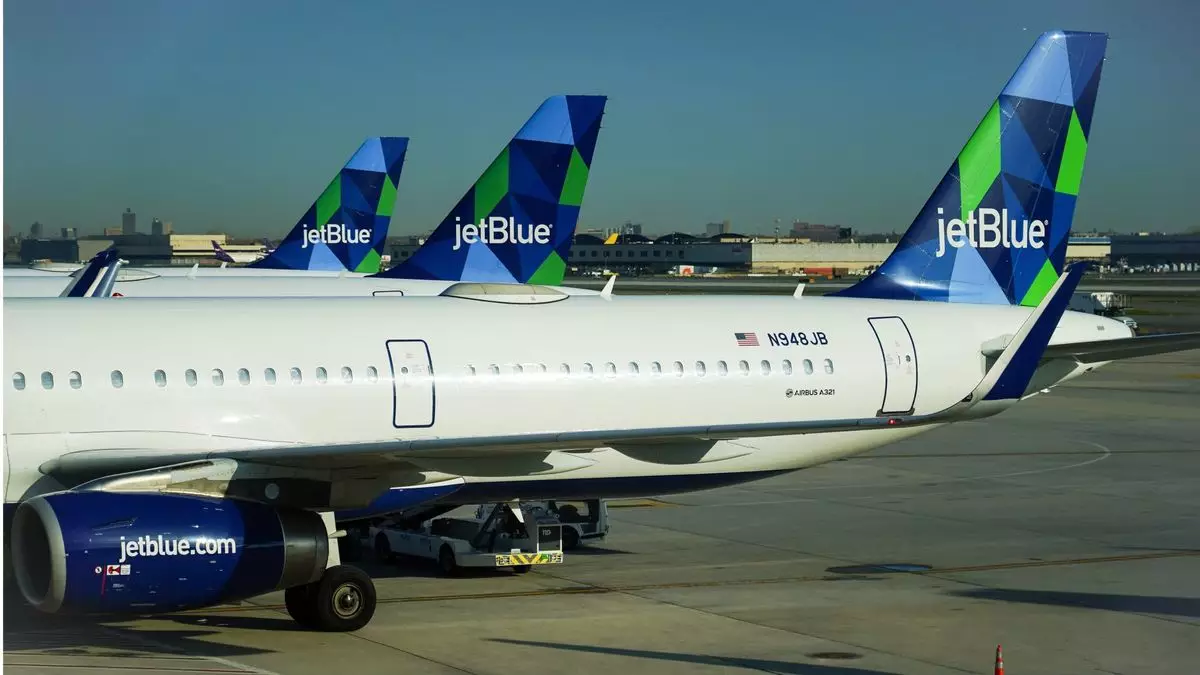In a landmark decision, the Department of Transportation (DOT) has imposed a hefty $2 million fine on JetBlue Airways, a penalty that is drawing significant attention within the aviation sector. This fine, issued in light of the airline’s chronic flight delays during 2022 and 2023, is noteworthy as it marks the first instance of the DOT penalizing an airline specifically for repeatedly scheduling impossibly tight flight timings. Such actions signal growing scrutiny from regulatory authorities regarding operational practices in the airline industry and highlight the severe implications of not adhering to operational standards.
JetBlue’s financial penalty arose due to an alarming pattern observed in four of its flight routes, including operations between New York JFK and Raleigh-Durham, as well as other routes between Fort Lauderdale and Orlando. These flights reportedly experienced delays in excess of 30 minutes more than half the time across extensive periods. Such delays can be indicative not only of poor scheduling practices but also a reflection of systemic issues, including air traffic control staffing shortages in high-density regions like the Northeast and Florida—areas where JetBlue has a significant operational footprint.
In a bid to mitigate the impact of this penalty, JetBlue attributed a portion of its flight delays to these external factors, notably the chronic shortages of air traffic controllers. This argument raises a critical discussion on how operational dynamics within the broader air travel system can inadvertently influence individual airline performance.
The $2 million settlement not only impacts JetBlue but also sets a precedent for the entire airline industry. By enforcing this fine, the DOT underscores the necessity for airlines to establish more realistic flight schedules that prioritize passenger inconvenience over corporate pressure to maximize operational capacity. The DOT’s ongoing investigations into similar issues with other airlines further illustrates a willingness to tackle misleading scheduling practices that may exploit consumers.
JetBlue’s defense also alludes to the broader issue of outdated air traffic control technologies, which have long been criticized for their inability to handle current aviation demands. This call for a modernization of such systems integrates well into the national discourse regarding infrastructure improvements necessary for ensuring the aviation sector’s reliability and safety.
JetBlue has taken steps to address its operational challenges by investing substantial resources to alleviate flight delays over the past two years. However, the airline’s history of performance remains a concerning factor. With a reported on-time performance of merely 74.5% in 2024—ranking second to last among major U.S. carriers—JetBlue must bolster its commitment to enhancing timeliness to rebuild consumer trust, as well as to align itself with regulatory expectations.
The settlement terms state that out of the total fine, $1 million will go directly to the U.S. Treasury, while the remaining amount is earmarked to reimburse customers suffering from delays attributed to JetBlue. This approach signifies an effort to rectify past grievances and highlights the brand’s intention to prioritize customer satisfaction moving forward.
As consumers increasingly rely on air travel for both business and leisure, the surrounding airline industry must advocate for a collective responsibility in providing efficient, reliable, and safe transportation. The multi-faceted challenges faced by carriers such as JetBlue are not isolated but are symptomatic of broader systemic issues that require collaborative solutions.
Investing in modern technologies, staffing enhancements, and more realistic scheduling practices can help restore confidence in the airline industry as a whole. Consumers have been vocal about their expectations around timeliness, safety, and accountability, and the recent actions taken by the DOT represent a burgeoning effort to ensure that airlines respond to these demands.
The significant fine imposed on JetBlue serves as a mirror reflecting not only the airline’s operational deficiencies but also the overarching need for reform within the aviation industry. By prioritizing modernization efforts and a renewed focus on consumer service, JetBlue and its competitors can pave a safer, more reliable future for air travel. The winds are changing in the airline world, and as this case reveals, outdated practices will no longer go unchecked.


Napsat komentář